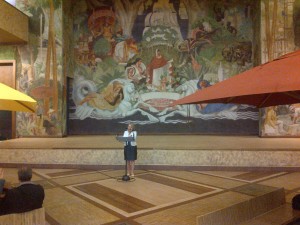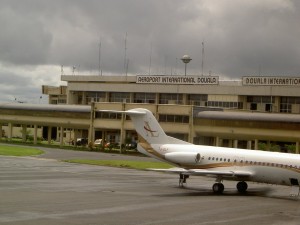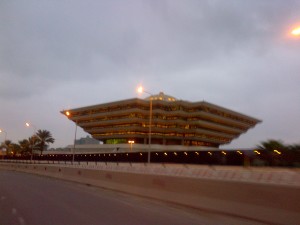Catherine Wihtol de Wenden s’est vue remettre le titre de chevalier de la Légion d’Honneur par Alfred Grosser pour sa brillante carrière de chercheure sur les questions de migration et d’intégration en France et en Europe.
Archives de l’auteur : Héléne Thiollet
Airport ethnography: researching exit and entry controls at the airport in Douala, Cameroon – Fieldwork by Maybrit Jill Alpes (Nov. 2013-Jan. 2014)
From November 2013 to the end of January 2014, my life was to a large determined by the arrival and departure times of Air France flights into the main international airport of Douala in Cameroon. Airports have rhythms and for three months I danced according to the tunes of the work shifts of the Cameroonian police, the constraints of private security staff, and the routines of the French policeman on patrol at the airport.
MobGlob interview of Helene Thiollet for Look Ahead/The Economist
Border control – Q&A
Why migration lags the globalisation of goods, ideas and capital
An interview by Helene Thiollet about migration, borders and governance on the blog of The Economist « Look ahead«
MOBGLOB research at the Middle East Working Group Seminar – European University Institute
Hélène Thiollet presents her paper « Resilient Residents: Immigration and Migration Policies in Saudi Arabia »
European University Institute Robert Schuman Centre for Advanced Studies
Thursday 24 April, 14-16h. – Badia Fiesolana, Seminar Room 2.
This paper focuses on the social, demographic and political changes induced by migration in migrants’ communities settled in the GCC countries or transiting through them. Its main finding is to conceptualize migration as a social transformation process in the Saudi (and GCC) context. It emphasizes 1. the growing importance of long term residence of documented and undocumented migrants, contrary to popular discourses and representation of immigration as a short-term phenomenon. Recent data allow us to discuss the consequences of “incipient diasporas”(Weiner 1986)[1] in the Gulf 2. the fabric of migration policy is the product of domestic and international negotiation between public and private actors, questioning the classical frameworks of analysis of politics in the Gulf context (patrimonial, authoritarian, rentier etc.)
Political and social models of the GCC countries have designed migration as temporary with little of no prospect of legal integration, citizenship and permanent settlement, strongly emphasizing the social and spatial segregation of both categories. Migration management by Gulf states is geared towards “anti integration” policies promoting urban segregation, little access to socio-economic rights and zero access to political rights (Thiollet 2010).
Researchers have emphasized the efficiency of the segregation models, of patterns of social exclusion and xenophobia. But one of the premises of both research and political discourses on migration to the Gulf is that immigrants have very little interaction with their host societies, considering both the policy efforts of the GCC states and ‘the exceptional closure of local societies” (Fargues 2011). Migration theory on the contrary has long been demonstrating the social impact of mobility on both host and home societies, and on migrants communities, looking both qualitatively and quantitatively at the consequences of material, cultural, financial, informational transfers on individuals and groups. Drawing on both quantitative and qualitative data this paper explores the dynamics of social, demographic, political and cultural change induced by long-term sojourn of immigrants in the Middle East with a particular focus on migrants’ communities in the GCC countries.
« Le modèle migratoire méditerranéen dans la tourmente », 26-27 mai 2014 – Colloque organisé par l’Ecole Française de Rome, le CERI (Sciences Po) et l’ANR MobGlob (CERI Sciences Po)
Comité d’organisation : Camille Schmoll, Hélène Thiollet, Catherine Wihtol de Wenden
Ce colloque propose de réinterroger le ou les systèmes migratoires méditerranéens de migration (Pugliese 2002 ; Khadri 2012 ; Wihtol de Wenden 2013), à la lumière de l’évolution des débats dans les études migratoires, et au regard des profonds changements qui ont affecté l’espace euro-méditerranéen durant les cinq dernières années (crises économique et financière sud-européenne, montée du chômage et des xénophobies, printemps arabes, conflits armés en Afrique du Nord et au Proche Orient).
Les modèles migratoires méditerranéens peuvent en particulier être réinterrogés autour des points suivants :
- Les effets de la crise économique sud-européenne du point de vue du ralentissement des flux migratoires et du départ de nouveaux émigrants européens.
- Le système migratoire méditerranéen comme creuset, à l’intersection de différents types de mobilités (retraités : migrations de seniors au soleil, touristes, émigrés de retour « returnees », migrants réguliers et irréguliers, demandeurs d’asile)
- La Méditerranée comme frontière et les lieux de territorialisation de la politique migratoire (îles, espaces maritimes)
- La politique euro-méditerranéenne de coopération en matière de migration: quel rôle pour les marges internes et externes de l’UE ?
- La question de l’asile, rendue encore plus sensible du fait des printemps arabes et des conflits syrien et libyen: quelle place pour les pays du pourtour méditerranéen ?
- La Méditerranée des échanges et des flux : trajectoires migratoires Sud/Sud ; Sud/Nord et Sud/Nord, pratiques et circulations transnationales
- La Méditerranée, entre géographies de la peur (construction sociale de la migration comme question sécuritaire) et géographies du cosmopolitisme (émergence de formes renouvelées de cohabitation et d’hospitalité)
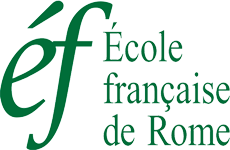
Saudi Migration policy – Article in Saudi Gazette Wednesday, 29 January 2014 – 28 Rabi Al-Awaal 1435 H
Building on a lecture given at the Consulat Français à Djedda on January 21st 2014, the Saudi Gazette has published an interview about my field work in Saudi Sarabia (January 2014).
You can read the full article at Saudi Gazette, interview of Dr Thiollet.
Field work on immigration policies in Saudi Arabia, January 2014 – Helene Thiollet
I am conducting field work on Saudi immigration policies, hosted by the King Faisal Center for Research and Islamic Studies. I am building on previous field work and publications on immigrants in Saudi Arabia (such as « Nationalisme d’Etat et nationalisme ordinaire en Arabie saoudite« ) to investigate the evolution of the role of public and private actors of migration management.
« Libre circulation et frontières ouvertes : Quel(s) impact(s) sur les flux migratoires ? » Séminaire de recherche Saint Julien, Malte, 4-7 décembre 2013
Contact: Pauline Brücker pauline.brucker@sciencespo.fr
Présentation
La libre circulation des personnes, pourtant mentionnée dans la Déclaration Universelle des Droits de l’Homme, reste encore aujourd’hui une utopie politique – ou un cauchemar, selon les points de vue. En matière de droit international public comme de politiques publiques nationales, régionales ou multilatérales, l’asymétrie est évidente entre les pays de départ et les pays d’arrivée des migrants. Si le droit d’émigrer n’est que marginalement contesté au sein de la communauté internationale notamment depuis l’effondrement de l’Union soviétique, le droit d’immigrer relève à l’échelle mondiale de la fiction.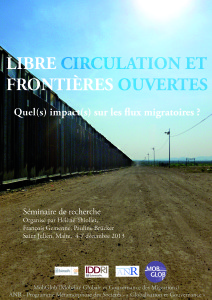
Global Mobility and Migration Governance – ANR Funded Project 2013-2015
Project summary
Worldwide mobility is a part of the social texture of globalisation and international relations. It is both a cause and a consequence of globalisation, and the response of national and international political institutions is key to any analysis of governance and social transformation on a global scale. It is one of the tension points in modern politics at both a national and international level. This project looks at international organisations, national and regional migration policies of different countries, ways of organising the living space of migrants and refugees and the transnational social dynamics of mobility. It describes the political and social structures and trends of mobility, mainly through the empirical observation of the practices of institutions and actors (countries, international organisations, migrants, refugees, networks etc.) involved in the governance of mobility. It also seeks to analyse the representations linked to these practices, and the devices of regulation, ideology and identity politics on which they are based. The researchers involved in this project favour an empirical approach together with a systematization following the models of political science, sociology, anthropology and political economy. They have also chosen to tie their research to political and social issues, and to produce an empirically grounded discussion on migration policies and migration politics. They share a common interest and critical insight on public action, both national and international, its norms and its principles in relation to mobility.
Social Change and Migration in the Gulf Monarchies- Conference, July 1st 2013
A collaborative event MOBGLOB and SYSREMO at CERI -Sciences Po, 56 rue Jacob, 75006 PARIS
Conveners : Christophe Jaffrelot (CNRS / Sciences Po – CERI), Laurence Louër (Sciences Po – CERI), Hélène Thiollet (Sciences Po – CERI, Mobglob ANR Program), Leïla Vignal (Chaire d’excellence CNRS/Université Rennes-2, Sysremo ANR Program, ESO-Rennes)
Full programme here.
This conference follows up on “Feedback : the impact of migration to the Middle East on sending countries », organized at CERI in September 2012. While the first venue explored the return effect of mobility on countries and societies of origin, the conference to be held in July 2013 will be looking at the consequences of mass-migration on Gulf societies, GCC states and economies. It is also building up on a previous workshop organised at the IMI – Oxford university in 2010 on Migration to the Gulf countries.

